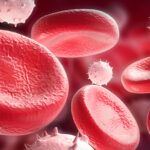While next generation cell-based treatments like CAR-T immunotherapies have been the source of much excitement and clinical investment in recent years, cellular therapies have a long, established history in the clinic. Bone marrow (BM) or hematopoietic stem cell transplantation has been the standard of care to treat a variety of blood and immune system diseases and certain types of cancer, such as leukemia, myeloma, and lymphoma since its establishment in the late 1960’s.
Bone marrow is the primary site of hematopoiesis, responsible for the formation and homeostasis of red and white blood cells in the body. Because of the immunological importance and diversity of bone marrow-derived cells, there are broad use cases for these cells in research and clinical applications. Notably, cell-base treatments using mesenchymal stem/stromal cells (MSCs), which can be found in the bone marrow stroma, have been used successfully in the clinic for many years to treat a broad spectrum of diseases because of their anti-inflammatory, immunomodulatory, and tissue regenerative properties. MSC-based cell therapy development continues to be a rapidly growing area of regenerative medicine.
MSCs constitute a heterogeneous population of spindle-shaped cells and are defined by The International Society of Cellular Therapy (ISCT) as having these minimum characteristics1:

- MSCs adhere to plastic
- ≥95% of the MSC population must express CD105, CD73 and CD90, as measured by flow cytometry and ≤2% positive expression of hematopoietic and endothelial markers such as CD45, CD34, CD14 or CD11b, CD79α or CD19 and human leukocyte antigen (HLA)-DR
- MSCs are capable of multilineage differentiation into osteoblasts (bone cells), adipocytes (fat cells), and chondroblasts (cartilage cells) under in vitro conditions
CLINICAL APPLICATIONS FOR MSCs
MSCs are considered to be “immune privileged” cells, meaning they do not display immunogenic properties. This is a particularly appealing attribute for allogeneic (donor cells) cell-based therapies since MSCs can be transplanted into patients without the need for immunosuppression. This is owing to low levels of major histocompatibility complex-I (MHC-I) molecules and lack of MHCII and costimulatory molecules expression that would elicit an immune response in the host. While MSCs are found in nearly every tissue of the body, BM-MSCs are most frequently used in clinical settings2. Other tissue sources are under investigation including adipose, dental pulp, umbilical cord and more but the cells possess different functional properties and warrant additional feasibility studies for use in the clinic3.
MSC therapies are currently being developed at an incredible pace with over 1500 clinical trials listed currently (clinicaltrials.gov , accessed June 1, 2021), a significant increase from 220 listed in 20124, spanning a diverse array of medical conditions such as treatment of GVHD5, bone and cartilage repair6,7, cardiovascular disease8, neurodegenerative disorders (i.e., Parkinson’s disease9, Alzheimer’s disease10), autoimmune and inflammatory diseases (i.e., Crohn’s disease11, osteoarthritis & rheumatoid arthritis1) and more.
Yet another area of active progress are therapeutics based on the paracrine effects exerted by MSCs. Their ability to act indirectly on cells in vivo through the secretion of extracellular vesicles (EVs), which are acellular products containing immunoregulatory molecules like miRNA, mRNA, proteins, growth factors that can effectively mimic the therapeutic effects of MSCs, participating in tissue repair and regeneration in several preclinical models. Use of MSC-derived EVs, which can potentially substitute for the transplantation of MSCs themselves, may become a new effective and safe “cell-free” therapeutic option that overcomes immunogenic complications in the host. While there is much excitement surrounding this approach, a thorough understanding of the mechanism of action and clinical potential of EVs is still required to reach their potential to treat patients2. Some researchers speculate that this new generation of cell therapy may eventually replace stem cell transplantation-based therapies in the coming future13.
STANDARDIZATION OF STARTING DONOR TISSUES
Particularly with MSC therapies, there is a growing body of research that shows donor attributes matter. Age, BMI and gender have been shown to impact MSC isolation efficiency, expansion, quality and in vivo therapeutic efficacy. For example, MSCs isolated from younger bone marrow donors are less susceptible to oxidative damage and mutagenesis, possess a higher in vitro expansion rate and differentiation potential2. BMI has been reported to impact the differentiation and proliferation abilities of MSC-derived adipocytes3. Therefore, the quality and consistency of the bone marrow harvested from donors, with its inherent biological variability, is paramount to the success of the resulting MSC therapy.
Allogeneic BM-derived MSCs represents an easier, commercially viable source to enable broad access to treat patients but brings to light the need for regulations and standardization to ensure product safety and efficacy particularly in light of the donor impact on therapeutic efficacy4. For cell therapies, standardization comes in the form of Good Manufacturing Practice (GMP), which is a regulatory framework recognized by the FDA, EMA and other global regulatory agencies to ensure their quality and consistency.
ALLCELLS’ GMP BONE MARROW
To meet the needs of the rapidly expanding MSC cell therapy market from inception through commercial manufacture, AllCells offers fresh, GMP clinical-grade bone marrow collected in accordance with FDA Title 21 CFR 1271 subparts A-C and provisions of subpart D as well as EU directives 2004/23/EC and 2006/17/EC. Our FDA-registered, GMP, accredited collection and processing facilities follow IRB guidelines and operate with strict QMS oversight to meet all regulatory compliance standards. Clinical Grade donor attributes are extensively characterized (HLA, gender, age, etc) and have undergone extensive viral testing translating to increased consistency with reduced cellular variability to accelerate your workflow. Further assurance is provided with a backup CG donor on hand to mitigate donor-attendance failures and the expenses associated with the unexpected unavailability of cells. A more in-depth discussion and explanation of AllCells’ GMP tissue procurement can be found on a previous GMP blog post.
Because each cell therapy program has unique donor requirements, our dedicated team of experts can work with you to create customized ‘made-to-order’ clinical grade products – whether you need to isolate cells from donors with specific attributes or have program-specific isolation or processing requirements.
For more information on AllCells’ clinical grade products, please visit allcells.com/gmp/
References
- Dominici M, Le Blanc K, Mueller I, et al. Minimal criteria for defining multipotent mesenchymal stromal cells. The International Society for Cellular Therapy position statement. Cytotherapy. 2006;8(4):315-317. doi:10.1080/14653240600855905
- Musiał-Wysocka A, Kot M, Majka M. The Pros and Cons of Mesenchymal Stem Cell-Based Therapies. Cell Transplant. 2019;28(7):801-812. doi:10.1177/0963689719837897
- Mastrolia I, Foppiani EM, Murgia A, et al. Challenges in Clinical Development of Mesenchymal Stromal/Stem Cells: Concise Review. Stem Cells Transl Med. 2019;8(11):1135-1148. doi:10.1002/sctm.19-0044
- Rodríguez-Fuentes DE, Fernández-Garza LE, Samia-Meza JA, Barrera-Barrera SA, Caplan AI, Barrera-Saldaña HA. Mesenchymal Stem Cells Current Clinical Applications: A Systematic Review. Arch Med Res. 2021;52(1):93-101. doi:10.1016/j.arcmed.2020.08.006
- Zhou X, Jin N, Wang F, Chen B. Mesenchymal stem cells: a promising way in therapies of graft-versus-host disease. Cancer Cell Int. 2020;20:114. Published 2020 Apr doi:10.1186/s12935-020-01193-z
- Kangari, P., Talaei-Khozani, T., Razeghian-Jahromi, I. et al. Mesenchymal stem cells: amazing remedies for bone and cartilage defects. Stem Cell Res Ther 11, 492 (2020). https://doi.org/10.1186/s13287-020-02001-1
- Le H, Xu W, Zhuang X, Chang F, Wang Y, Ding J. Mesenchymal stem cells for cartilage regeneration. J Tissue Eng. 2020;11:2041731420943839. Published 2020 Aug 26. doi:10.1177/2041731420943839
- Guo, Y., Yu, Y., Hu, S. et al. The therapeutic potential of mesenchymal stem cells for cardiovascular diseases. Cell Death Dis 11, 349 (2020). https://doi.org/10.1038/s41419-020-2542-9
- Fričová, D., Korchak, J.A. & Zubair, A.C. Challenges and translational considerations of mesenchymal stem/stromal cell therapy for Parkinson’s disease. npj Regen Med 5, 20 (2020). https://doi.org/10.1038/s41536-020-00106-y
- Nakano, M., Kubota, K., Kobayashi, E. et al. Bone marrow-derived mesenchymal stem cells improve cognitive impairment in an Alzheimer’s disease model by increasing the expression of microRNA-146a in hippocampus. Sci Rep 10, 10772 (2020). https://doi.org/10.1038/s41598-020-67460-1
- Carvello M, Lightner A, Yamamoto T, Kotze PG, Spinelli A. Mesenchymal Stem Cells for Perianal Crohn’s Disease. Cells. 2019;8(7):764. Published 2019 Jul 23. doi:10.3390/cells8070764
- Hwang JJ, Rim YA, Nam Y, Ju JH. Recent Developments in Clinical Applications of Mesenchymal Stem Cells in the Treatment of Rheumatoid Arthritis and Osteoarthritis. Front Immunol. 2021;12:631291. Published 2021 Mar 8. doi:10.3389/fimmu.2021.631291
- Maacha S, Sidahmed H, Jacob S, et al. Paracrine Mechanisms of Mesenchymal Stromal Cells in Angiogenesis. Stem Cells Int. 2020;2020:4356359. Published 2020 Mar 9. doi:10.1155/2020/4356359




